Smethwick: Deportation of 'kind auntie' fought by community
- Published
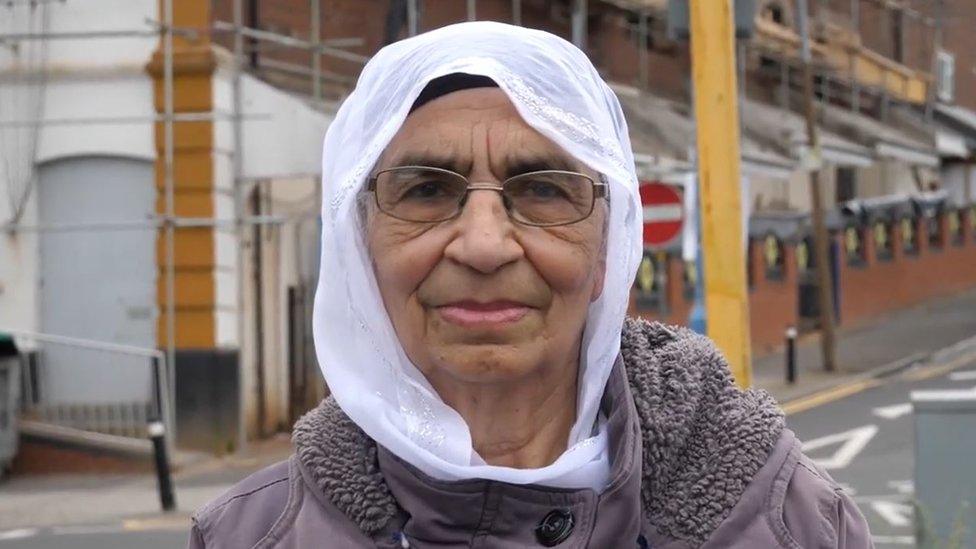
Gurmit Kaur, 78, has no family to return to in India and is estranged from her children in the UK
A community has rallied around an Indian woman who is at risk of being deported.
Gurmit Kaur, 78, travelled to the UK in 2009 to attend a wedding and has lived in Smethwick ever since, becoming a popular volunteer in the area.
Her appeal for indefinite leave to remain in the UK was rejected despite an online petition with over 65,000 signatures, external calling for her to stay.
A Home Office spokesperson said all applications were carefully considered.
The well-known figure is known locally as a "kind auntie" by the town's Sikh community who have adopted her.
After the wedding 11 years ago, Mrs Kaur initially stayed with her son, saying she did not have enough money for a return ticket to Punjab, India.
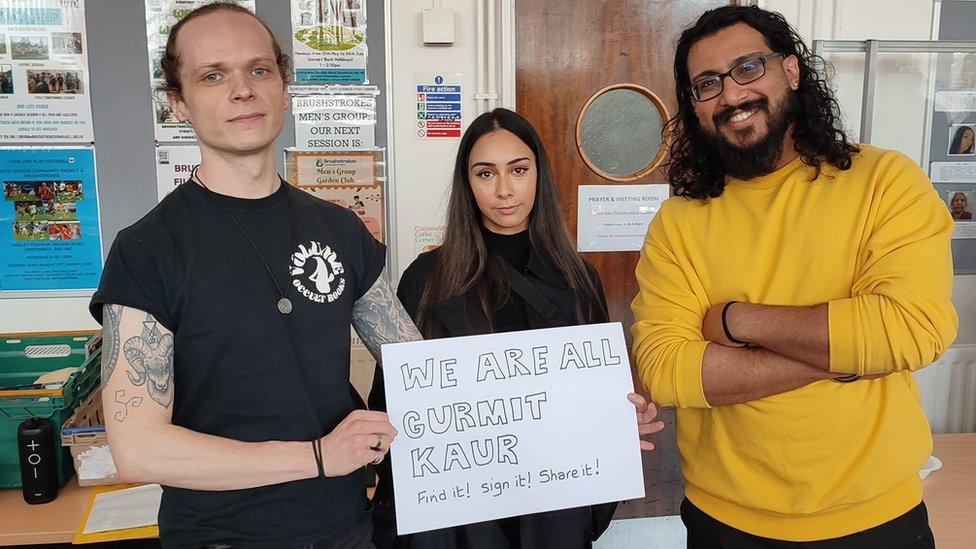
Members of the community in Smethwick have rallied out to help boost her campaign to stay
Mrs Kaur, whose husband has passed away, later became estranged from her children in the UK.
As she has no home to call her own in Smethwick she is now sofa surfing and relies on the kindness of people in the community.
Despite her circumstances, she has spent her time helping out at local food banks, her supporters have said.
In 2020, the We Are All Gurmit Kaur campaign was launched as people called for her to stay.
At the time she was told she would have to either leave the country voluntarily or face deportation despite having no relatives in India to return to.
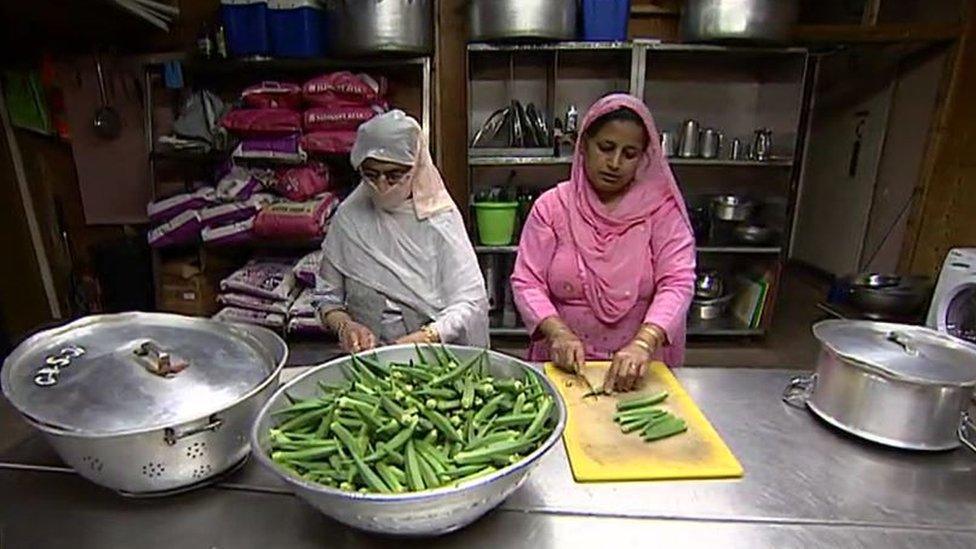
The widow spends her time volunteering at her local foodbank
Campaigners say they are fighting to keep her in the UK on the grounds that she has no friends or family to look after her in the land where she grew up.
The Home Office has countered this argument stating that she was still in contact with people in her home village and would be able to readjust to life in the south Asian country.
With the backing of her community she appealed against the Home Office ruling last month, but this was rejected by the courts.
She said: "I don't know what to do, I feel helpless, I don't know where to turn or what to do."
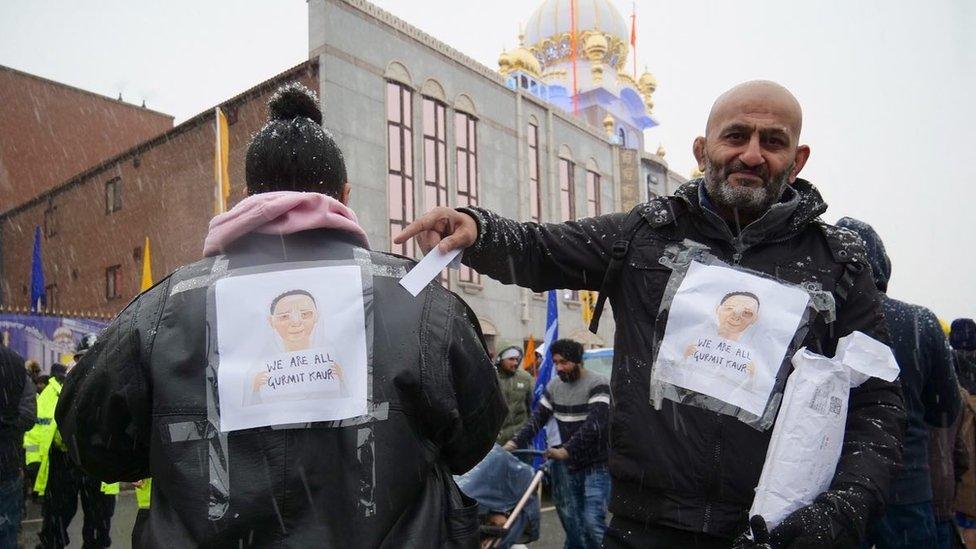
Mr Mirza has been representing Mrs Kaur's case and helped the campaign go viral
Salman Mirza, an immigration advisor for the Brushstroke Community Project, has been representing Mrs Kaur and says "she will probably die invisible".
He added: "She has a derelict house in the village, with no roof and would have to find heating, food, and resources in a village she hasn't been to in 11 years.
"It's like water torture, it's like a slow death, she's never had the right to work and provide for herself."
A spokesperson for the Home Office said it can not comment on individual cases but, "all applications are carefully considered on their individual merits and on the basis of the evidence provided".

Follow BBC West Midlands on Facebook, external, X, external and Instagram, external. Send your story ideas to: newsonline.westmidlands@bbc.co.uk, external
Related topics
- Published9 October 2023
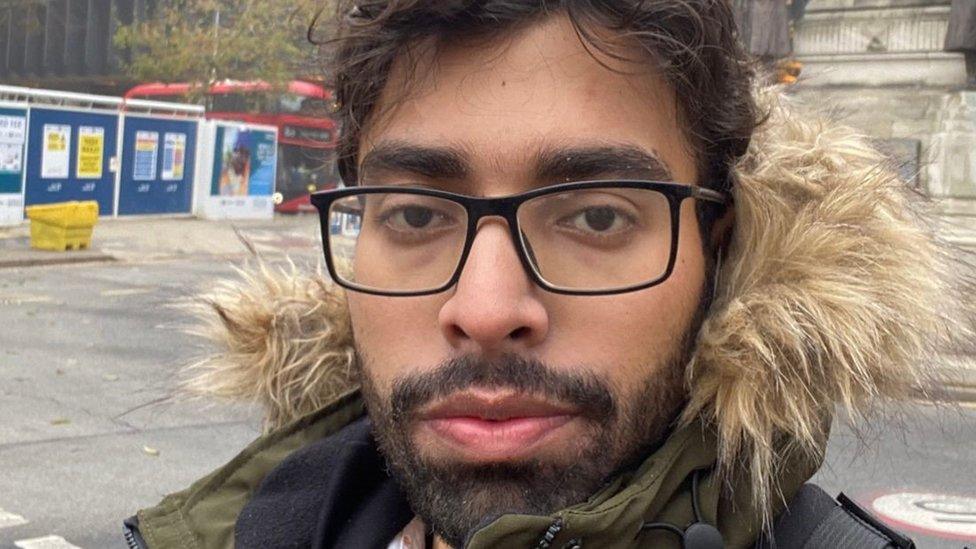
- Published22 June 2023
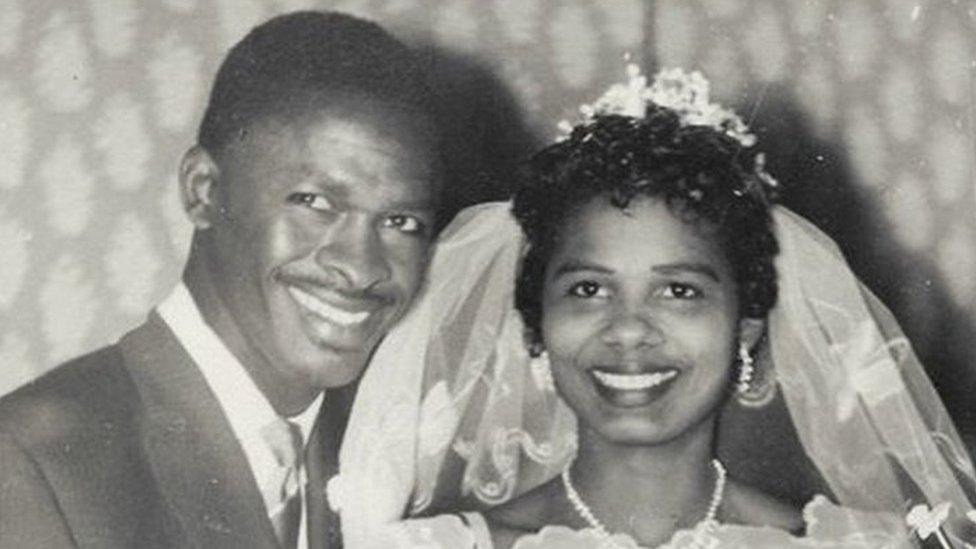
- Published1 August 2018
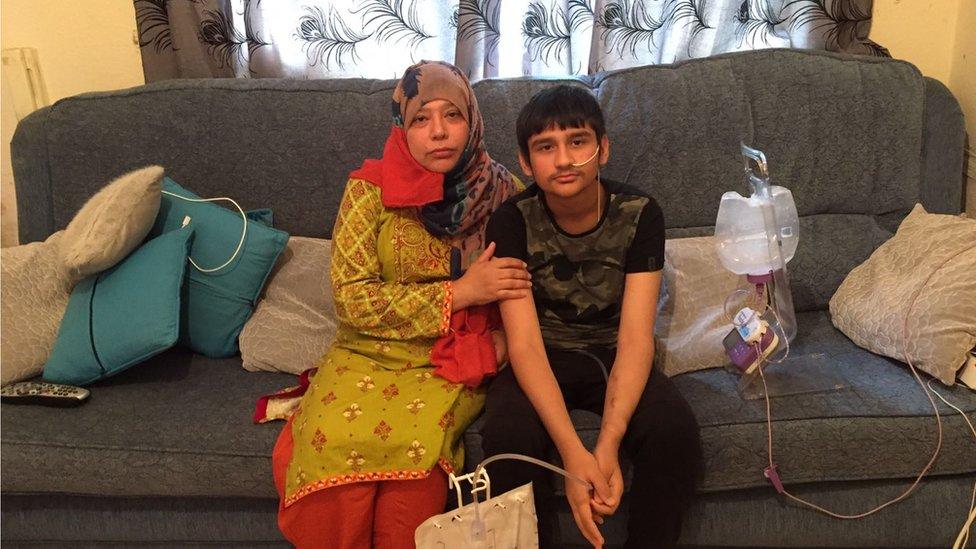
- Published25 August 2017
